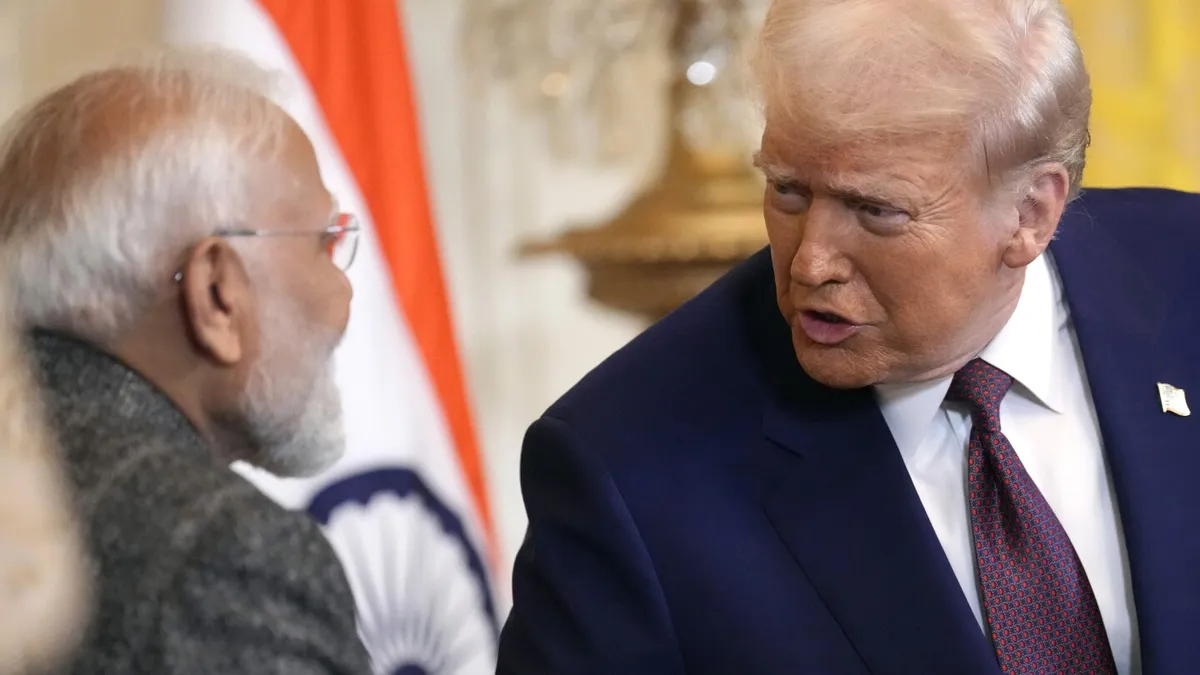
In a significant move that could reshape U.S.-India trade relations, President Donald Trump announced on Wednesday his intention to impose a 25% tariff on various goods imported from India. This decision comes in conjunction with an additional import tax, which is a direct response to India's ongoing purchases of Russian oil. Trump took to his platform, Truth Social, to express his concerns, stating that while India “is our friend,” their tariffs on U.S. goods are excessively high.
President Trump highlighted that India's acquisition of military equipment and oil from Russia has contributed to the ongoing conflict in Ukraine. Consequently, he plans to levy a “penalty” starting Friday as part of his administration's revised tariff strategy, which aims to renegotiate trade agreements with multiple countries. According to Ajay Sahai, the director general of the Federation of Indian Export Organisations, these new tariffs could disadvantage India in the U.S. market compared to competitors like Vietnam, Bangladesh, and possibly even China. Sahai noted, “We are back to square one as Trump hasn’t spelled out what the penalties would be in addition to the tariff. The demand for Indian goods is bound to be hit.”
This announcement follows a series of negotiated trade frameworks with key partners, including the European Union, Japan, the Philippines, and Indonesia. Trump emphasized that these agreements would facilitate American goods' access to foreign markets while allowing the U.S. to increase import tax rates. The president views the revenue generated from tariffs as a tool to mitigate the rising budget deficit caused by his recent income tax cuts and to create more domestic manufacturing jobs.
Despite Trump's aggressive tariff strategy, the economic ramifications remain uncertain. Economists predict a potential slowdown in U.S. growth and heightened inflationary pressures as the costs associated with these tariffs may be transferred to American businesses and consumers. Additionally, Trump's decision to impose a 15% tariff on U.S. allies in the EU has sparked backlash, with European leaders, including French President Emmanuel Macron, expressing concerns about the U.S.'s leadership on the global stage. Macron stated that Europe “does not see itself sufficiently” as a global power, emphasizing the urgency for Europe to enhance its sovereignty and competitiveness.
The U.S. has long sought to establish a stronger partnership with New Delhi, viewing it as a strategic counterbalance to China. Indian Prime Minister Narendra Modi has fostered a constructive relationship with Trump, and both leaders are likely to seek further cooperation. According to the Census Bureau, the U.S. recorded a trade imbalance of $45.8 billion in goods with India last year, importing more than it exported. Given India's population of over 1.4 billion, it represents a significant market and a potential geopolitical counterweight to China.
The newly announced tariffs could hinder India's ambitions to double bilateral trade with the U.S. to $500 billion by 2030. The two nations have engaged in five rounds of negotiations for a bilateral trade agreement. While the U.S. seeks greater market access and zero tariffs on nearly all exports, Indian officials have expressed concerns about opening up sensitive sectors such as agriculture and dairy, which provide livelihoods for a large portion of the Indian population.
During a meeting with Modi in February, Trump asserted that India would begin to purchase American oil and natural gas. Following his recent trip to Scotland, Trump addressed reporters about his trade policies but refrained from confirming the impending tariff rates for India, stating, “We’re going to see.” Upon returning to the White House, Trump claimed that there were no plans to announce new tariff rates, a statement that turned out to be inaccurate.
As the situation unfolds, the implications of these tariffs will be closely monitored by both American and Indian stakeholders, as well as international observers.